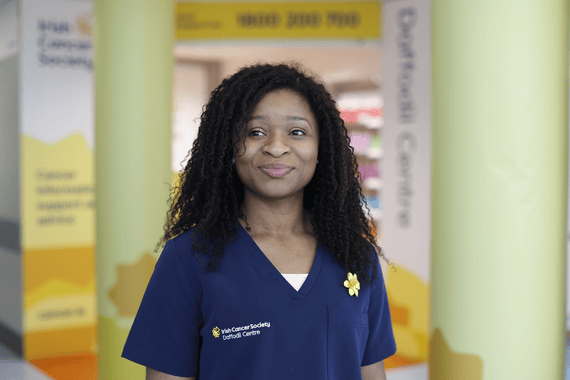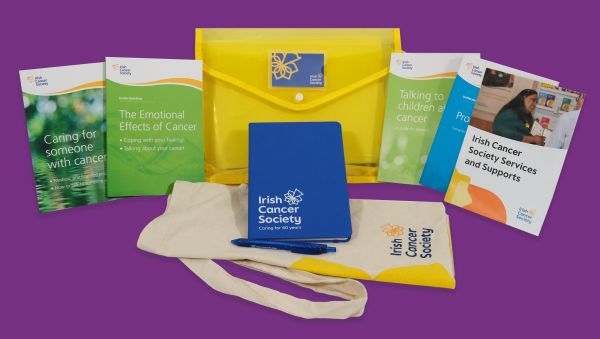Acute lymphoblastic leukaemia (ALL)
Diagnosis and tests
Diagnosing ALL
Your family doctor (GP) will talk to you about your symptoms and arrange blood tests, if needed. If your blood test is abnormal you will be referred to hospital for more tests. For example:
Listening to your chest, feeling your abdomen, asking questions about how you have been feeling recently.
Blood tests, such as a full blood count. This finds out the levels of the different types of blood cells in your blood.
Taking a sample of your bone marrow (and maybe bone) and looking at it under a microscope to see the number and type of cells in it.
Taking a sample of the fluid that surrounds your brain and spinal cord using a needle in your lower back. The fluid will be checked for cancer cells.
These tests look at how DNA is laid out and organised within a cell. DNA is a molecule that contains all of our genetic information. In chromosomes, DNA is twisted and coiled to protect it from damage. This test detects big mistakes in the layout of the cell's genetic material. For example, sometimes with ALL, there is an abnormal chromosome called the Philadelphia chromosome.
Checking for proteins or markers on the surface of the leukaemia cells to give more information about your type of ALL.
You may require other tests, such as a chest X-ray or a lymph gland biopsy. However, not every person requires these.

If you are diagnosed with ALL, we're here for you.
Our cancer nurses are here if you need information or just want to talk. They can help you to understand your diagnosis and what to expect, send you information and tell you about our services.
Further tests for ALL
You may need further tests to give your doctors more information about your general health and about the cancer. For example:
As well as a full blood count, you may have blood tests to see how well your liver and kidneys are working.
Taking a sample of the fluid that surrounds your brain and spinal cord using a needle in your lower back. The fluid will be checked for cancer cells.
Taking a sample of your bone marrow (and maybe bone). The sample is taken from the inside of your bone, usually the hipbone. The sample is examined under a microscope to see the number and type of cells in it. You may have this test to diagnose ALL and also to see how you are responding to treatment.
Chromosome tests can find out the number and shape of the chromosomes in your blood cells. Tests can be done on either your blood and/or bone marrow samples. With ALL, there may be some particular genetic changes in the leukaemia cells. Knowing about these changes will help your doctor to decide on the best treatment for you. For example, with ALL, sometimes there is an abnormal chromosome called the Philadelphia chromosome. There are special treatments to target this.
A test called FISH analysis (fluorescence in situ hybridisation) makes abnormal genes glow (fluoresce) so that the doctor can identify the particular type of genetic abnormality. A FISH test can help your doctor to predict how your leukaemia might respond to a particular treatment.
Immunophenotyping is a test that checks what kind of proteins or markers are on the surface of the leukaemia cells. Immunophenotyping can be used to diagnose what type of ALL you have. For example, it can tell if B-cells or T-cells are causing the problem with ALL. The result can affect what type of treatment you have.
Flow cytometry measures the number and percentage of cells in a blood sample and cell characteristics such as size, shape and the presence of biomarkers on the cell surface. Cells, usually from the bone marrow or blood, are passed through a machine called a flow cytometer. This method can be used for immunophenotyping or to check how you are responding to treatment.
The tests you have can help to:
- Show the extent of your leukaemia and the type of leukaemia you have.
- Help your doctor to predict how your leukaemia might respond to a particular treatment and to decide on the best treatment for you.
Some tests may be used to see how you are responding to treatment.
Waiting for test results
While some results may come back quickly, others may take longer, such as genetic test results.
Waiting for results can be an anxious time. It may help to talk things over with your doctor or nurse or with a relative or close friend. You can also call our Support Line on 1800 200 700 or visit a Daffodil Centre to speak to a cancer nurse.
Continue reading about acute lymphoblastic leukaemia (ALL)




Get help & support

Support Line
Free support pack

